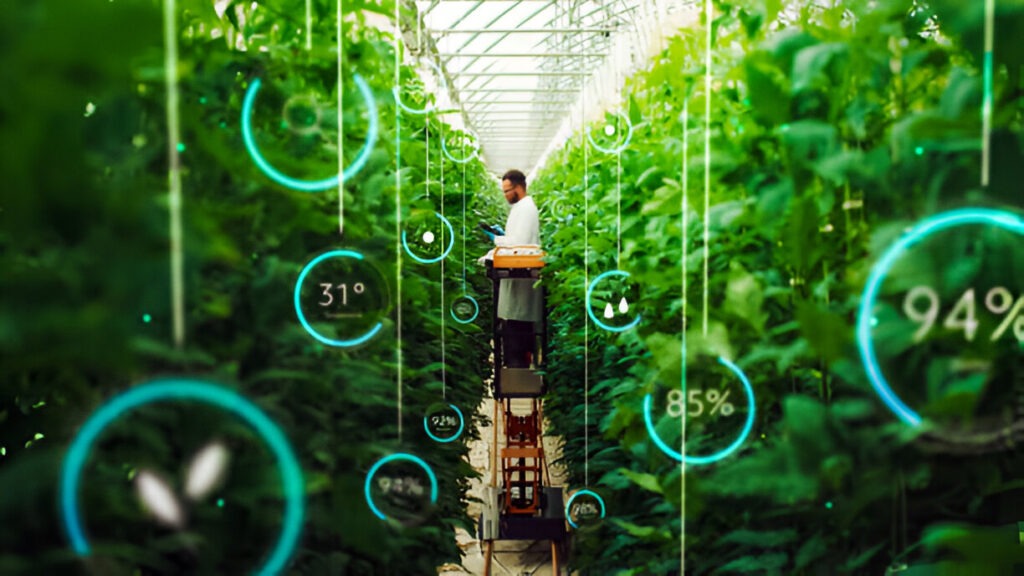Table of Contents
- Introduction
- Understanding AI: What Is It?
- Key Trends in AI by 2025
- The Benefits of AI in Everyday Life
- The Ethical Considerations of AI
- AI and the Global Economy
- The Future of AI: What Lies Ahead?
- Real-Life Examples of AI Innovations in 2025
- Conclusion
Introduction
Artificial Intelligence (AI) is no longer just a futuristic concept; it has become an integral part of our daily lives and industries. By 2025, AI is set to revolutionize the world in unprecedented ways, impacting how we live, work, and interact with each other. From healthcare to education, AI technologies are influencing our routines, enhancing efficiency, and enabling new possibilities that were once limited to science fiction. The capabilities of AI have expanded significantly over the past few years, and its applications have become diverse and multifaceted. This article explores the transformative impact of AI across various sectors, the associated benefits and ethical considerations, and what the future holds for individuals and organizations alike. As we delve into this exciting landscape, we will see not only how AI is shaping our present but also how it is paving the way for a smarter, more connected future.
Understanding AI: What Is It?
Definition of AI
Artificial Intelligence refers to the simulation of human intelligence processes by computer systems. These processes include learning, reasoning, and self-correction. AI can be categorized into two main types: narrow AI, which is designed for specific tasks, and general AI, which aims to replicate human cognitive abilities. By enabling machines to mimic cognitive functions, AI enhances decision-making, automates processes traditionally performed by humans, and opens avenues for innovation that can significantly improve our quality of life.
Historical Context
AI has come a long way since the term was coined in the mid-20th century. Early developments focused on rule-based systems and basic algorithms, but advancements in machine learning and neural networks have propelled AI to new heights. As we approach 2025, we expect AI systems to exhibit greater autonomy and adaptability, fundamentally shifting industries. Notably, advancements in deep learning and big data analytics have led to breakthroughs in various fields, enabling AI to analyze vast amounts of data and recognize patterns that would be impossible for humans to discern. This continuous evolution is setting the stage for unprecedented growth and transformation across sectors.
Key Trends in AI by 2025
AI is evolving rapidly, and several trends are shaping its growth in 2025.
AI in Healthcare
AI is revolutionizing healthcare through various innovative applications. One of the most impactful uses is in predictive analytics, where AI analyzes patient data to forecast health outcomes and identify potential risks. This proactive approach allows healthcare providers to intervene early, ultimately improving patient outcomes. Telemedicine has also taken a front seat, with AI-driven platforms enhancing remote consultations through automated symptom checks and diagnostics. Moreover, personalized medicine is becoming increasingly prevalent, as AI tailors treatment plans based on individual genetic data, leading to more effective therapies.
Case Study: IBM’s Watson Health has been instrumental in assisting doctors with cancer diagnoses by analyzing vast datasets faster than humans can. It uses natural language processing and machine learning to provide recommendations that improve treatment decisions, showcasing how AI can augment human expertise in critical fields.
AI in Education
In the educational sector, AI contributes significantly by providing personalized learning experiences for students. AI systems can adjust learning materials based on individual student performance, ensuring that each learner receives the support they need to succeed. Administrative efficiency is another key area where AI shines, automating tasks such as grading and scheduling, thereby freeing up educators to focus on teaching. Additionally, virtual tutors powered by AI provide real-time assistance, enabling students to receive help whenever they need it.
Example: Platforms like DreamBox Learning leverage AI algorithms to adjust math lessons to individual student needs. The system collects data on student interactions and modifies content in real time, creating a tailored learning experience that fosters deeper understanding and engagement.
AI in Business
Businesses are increasingly leveraging AI to streamline operations and enhance productivity. By automating repetitive tasks, companies can reduce human error and free employees to focus on strategic initiatives that drive growth. Data-driven insights derived from AI analyses help organizations understand market trends and consumer behavior, allowing them to make informed decisions. Furthermore, AI is transforming customer service by deploying chatbots that provide 24/7 support, enhancing customer satisfaction while reducing operational costs.
Fact: According to McKinsey, companies that fully implement AI could boost their cash flow by 122% by 2025. This statistic underscores the financial benefits of AI adoption, emphasizing its potential for creating value in diverse business contexts.
AI in Transportation
AI is reshaping transportation by enhancing safety and efficiency. Autonomous vehicles are at the forefront of this transformation, utilizing AI algorithms to navigate routes, detect obstacles, and respond to changing conditions. This technology can significantly reduce accidents caused by human error and improve overall traffic management. Additionally, AI is optimizing traffic flow in urban areas through smart traffic management systems that analyze real-time data to adjust signal timings. In logistics, AI supports route optimization for delivery services, leading to faster and more cost-effective operations.
The Benefits of AI in Everyday Life
The integration of AI into everyday activities brings numerous advantages that enhance our lives in various ways.
Enhanced Convenience
AI enhances daily life by providing unprecedented convenience. Smart assistants like Google Home and Amazon Echo empower users by allowing them to perform tasks through voice commands, from setting reminders to controlling smart home devices. These advancements mean that everyday tasks can be completed with minimal effort, saving time and reducing stress. Moreover, AI algorithms provide personalized recommendations across platforms, such as streaming services like Netflix, which analyze user preferences to suggest shows or movies tailored to individual tastes. This creates a more enjoyable and customized entertainment experience.
Improved Safety
AI significantly contributes to safety in modern society. Advanced security systems leverage AI technologies, such as facial recognition, to prevent unauthorized access to buildings and secure sensitive areas. These systems can analyze video footage in real time to identify potential threats, providing peace of mind to individuals and businesses alike. Furthermore, financial institutions employ AI to detect fraudulent activities by analyzing transaction patterns and flagging unusual behavior. This proactive approach helps protect customers from financial losses and enhances overall security in the digital landscape.
Increased Efficiency
AI boosts efficiency across various sectors, resulting in significant time and resource savings. Automation of routine tasks, such as data entry and scheduling, allows businesses to allocate human resources to more strategic and creative endeavors. This shift not only enhances productivity but also fosters innovation within organizations. Additionally, AI systems can analyze resource usage patterns, enabling companies to optimize their operations and minimize waste. By making smarter decisions based on real-time data, organizations can achieve greater operational efficiency, ultimately leading to improved profitability.
Will Finance Jobs Be Replaced by AI in 2025?
The Ethical Considerations of AI
As AI becomes more prevalent, ethical concerns arise that deserve careful consideration.
Privacy Concerns
The use of AI raises important questions about privacy and data security. As AI systems collect and analyze vast amounts of personal data, the potential for misuse becomes a significant concern. Consumers are increasingly wary of how their data is collected, stored, and utilized. Ensuring user consent and transparency is paramount for organizations deploying AI technologies; failure to address these issues can lead to a lack of trust and reputational damage. Striking the right balance between leveraging data for AI advancements and protecting individual privacy is a crucial challenge that must be navigated.
Job Displacement
While AI undoubtedly creates new opportunities, it also poses challenges, particularly regarding job displacement. As industries automate processes and require fewer human workers, certain job roles, especially in manufacturing and customer service, may become obsolete. This shift necessitates a societal response to facilitate workforce transitions, including retraining programs and educational initiatives that equip individuals with the skills needed for emerging careers. A collaborative effort between businesses, governments, and educational institutions is essential to address the evolving job landscape shaped by AI advancements.
Bias and Fairness
AI systems can inherit biases present in their training data, leading to discriminatory practices. If AI algorithms are trained on datasets that reflect societal biases, the resulting decisions may favor certain demographics over others, perpetuating inequalities. Addressing bias and ensuring fairness in AI applications is vital for building inclusive systems that benefit everyone. Organizations must prioritize transparency in AI development, conducting regular audits to identify and mitigate biases. Commitment to ethical AI practices not only enhances societal trust but also fosters innovation by ensuring diverse perspectives are represented in AI solutions.
AI and the Global Economy
AI’s influence on the global economy is substantial, driving growth and innovation across sectors.
Economic Growth
AI is projected to add a staggering $15.7 trillion to the global economy by 2030, according to a report by PwC. This growth is attributed to increased productivity, enhanced consumer experiences, and the creation of entirely new market segments driven by AI innovations. As businesses integrate AI technologies, they can optimize their operations, reduce costs, and improve overall performance. This boost in economic activity creates new job opportunities, fostering a positive cycle of growth and development.
AI Startups and Innovation
The AI startup ecosystem is thriving, with a surge in funding and innovation in recent years. In 2022 alone, AI-focused startups received over $75 billion in investment, highlighting the growing interest in AI technologies. These startups are at the forefront of developing groundbreaking solutions that tackle real-world challenges across various industries, from healthcare to finance. The competitive landscape fosters collaboration, knowledge sharing, and rapid iteration, driving advancements that can significantly impact societal well-being and economic progress.
AI in Developing Countries
AI offers unique opportunities for developing nations by addressing key challenges and improving quality of life. For instance, AI-driven analytics can help farmers optimize their agricultural practices, leading to increased yields and food security. In healthcare, AI technologies can enhance diagnostics in regions with limited access to medical professionals, ensuring that more individuals receive timely and effective care. By leveraging AI, developing countries can bridge gaps in infrastructure and access to services, enabling them to participate more fully in the global economy.
The Future of AI: What Lies Ahead?
Predictions for AI Development
Experts predict that by 2025, AI will significantly enhance human capabilities rather than simply replace them. The integration of AI technologies into various sectors will allow humans to focus on creative and strategic tasks while AI handles data analysis and routine processes. This collaboration will lead to more innovative solutions, as human intuition and empathy combine with AI’s analytical prowess.
AI and Human Collaboration
As AI becomes more sophisticated, the relationship between humans and AI systems will evolve. Humans will increasingly leverage AI as a collaborative partner, enhancing their decision-making processes and problem-solving capabilities. This partnership will not only boost productivity but also foster a culture of innovation within organizations. Companies that embrace this collaboration will likely outpace their competitors, positioning themselves as leaders in their respective industries.
Preparing for an AI-Driven Future
To thrive in an AI-centric landscape, individuals must focus on upskilling and adaptability. Learning new digital skills, understanding AI technologies, and being open to changing roles and responsibilities will be crucial for success. Educational institutions and organizations should prioritize training programs that equip the workforce with the necessary skills to navigate the evolving job market shaped by AI advancements. By investing in education and lifelong learning, we can build a workforce that is prepared for the challenges and opportunities presented by AI.
Real-Life Examples of AI Innovations in 2025
Case Study 1: AI in Agriculture
AI technologies are transforming agriculture through precision farming techniques that significantly enhance productivity. By utilizing AI-driven analytics, farmers can assess soil health, monitor crop growth, and analyze weather patterns to optimize planting schedules. This proactive approach allows farmers to make informed decisions that ultimately lead to higher yields. Furthermore, automated harvesting technologies powered by AI can identify ripe crops and harvest them efficiently, reducing labor costs and improving overall productivity.

Case Study 2: AI in Finance
In the finance sector, AI is revolutionizing how institutions operate and manage risk. Machine learning algorithms analyze transaction data to identify unusual patterns and detect fraudulent activities. This proactive approach helps financial institutions safeguard their clients’ assets and build trust. Additionally, algorithmic trading systems utilize AI to execute trades based on real-time market analysis, ensuring that investment strategies are optimized and responsive to market fluctuations.
Case Study 3: AI in Climate Change
AI plays a crucial role in environmental initiatives by providing innovative solutions to combat climate change. AI models can predict climate patterns, helping policymakers and businesses make informed decisions about resource allocation and environmental sustainability. Moreover, AI technologies optimize energy consumption in smart grids, reducing waste and promoting more efficient use of renewable energy sources. By harnessing the power of AI, we can develop strategies to mitigate the impacts of climate change and build a more sustainable future.
Conclusion
AI is poised to change the world dramatically by 2025. From revolutionizing healthcare and education to reshaping business practices and transportation, AI’s impact is profound and far-reaching. While the benefits of AI are vast, it is essential to address the ethical considerations and challenges that arise as we move forward. By embracing AI responsibly, we can maximize its advantages while minimizing potential drawbacks. As we progress into an AI-driven future, staying informed, adaptable, and committed to ethical practices will be key to thriving in an increasingly interconnected and technologically advanced world. The journey ahead is filled with opportunities, and with the right approach, we can harness the potential of AI to create a better, more equitable society for all.



